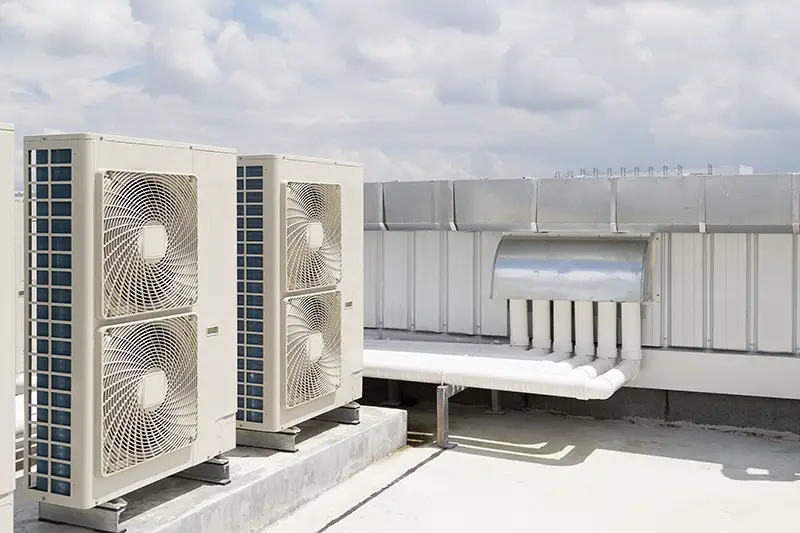Click here to get this post in PDF
New technology has shaped and continues to shape the HVAC industry. To keep up, HVAC companies need to ensure they are leveraging the right tools and technology.
Here are seven ways technology is changing the HVAC industry:
Sustainable HVAC Solutions
More and more HVAC companies are gearing toward sustainable solutions and green building strategies designed for maximum power efficiency. Examples are solar solutions and geothermal heat pumps.
To create sustainable HVAC designs, HVAC technicians use innovative software systems that involve energy improvement measures for existing systems.
Another example is the use of eco-friendly AHUs. Through a more collaborative and end to end AHU selection software, one can effectively manage proper ventilation and air temperature to achieve the desired thermal comfort level.
Smart HVAC Systems
This technology leverages networked HVAC components to enable occupants of the room or office to control things like humidity, fan speed, air temperature, and other aspects to achieve an ideal thermal comfort level.
All of these can be controlled via a mobile device, such as a smartphone or a tablet.
Aside from ensuring thermal comfort, smart HVAC systems also help a company save money on energy costs because they can program the HVAC system to support only an area or room where there are people present.
Preventive Maintenance
Smart HVAC systems have become a game-changer in the industry. Aside from making it easy for building occupants to control their indoor environment, they are also being utilized to provide customized recommendations to their clients to improve energy efficiency.
For example, these systems can gather data based on usage and other factors to create a preventive maintenance plan.
IoT-enabled control systems help with preventive maintenance by offering remote monitoring, remote adjustment, and equipment status sensing. They also alert and notify users if there are potential issues in their HVAC system.
Virtual Reality for Training HVAC Technicians
Virtual reality (VR) has revolutionized the way new HVAC technicians are trained. This technology involves 3D computer-generated simulations that mimic a real-world environment.
VR training makes it easier for trainees to learn a wide range of skills from their computers, anytime and anywhere. From understanding the variations of basic tools to advanced troubleshooting, you can train your technicians effectively without added costs.
Mobile Technology
Many companies utilize mobile technology to connect with customers and collaborate with their technicians.
For example, technicians can see their schedule or project assignments using a mobile-based software or app. Meanwhile, customers can book and pay for services conveniently through their phones.
Inventory Management
Today’s technology allows HVAC companies to streamline processes to save time and costs. Some software systems are designed for technicians to see a complete inventory of parts, which eliminates the need to return to the job site.
HVAC companies are also utilizing modern diagnostic tools to detect signs of potential problems in their teams. These tools are also used to monitor employees’ performance and provide training on areas that they need improvement.
Wearable Video Technology
Many HVAC companies are taking customer service to the next level by providing transparent expert service to their clients.
This involves HVAC techs using wearable recording devices that resemble safety glasses to provide the video after completing the service.
Through the video, the expert is not only telling the clients what tasks were completed but also how they were performed. All these enhance the communication and trust of clients to their technicians.
Conclusion
Technology has revolutionized the HVAC industry. If you are an HVAC tech or a company owner, you should make sure you are embracing technology and leveraging the right tools to grow and prosper your business.
You may also like: What is an HVAC System, and How Does it Work?
Image source: Dreamstime.com

